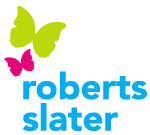Accelerating your inner potential
Coaching is unlocking a person’s potential to maximise their own performance. It is helping them to learn rather than teaching them
Having emerged from the world of sport in the 1960’s, coaching transferred into business and was popularised in the 1990’s. It is today accepted as a respected and widely used resource for personal development and performance improvement.
Whether coaching at work or in life coaching, coaching with an external coach can be a cost effective and flexible form of personal development to achieve performance improvement, achieve a better work/life balance or to become a more skilled, more effective leader.
Performance and Executive Coaching
The research evidence from CIPD and others demonstrates that coaching has become a popular organisational intervention that now ranks alongside leadership development programmes. Further there is a belief in organisations that coaching delivers results (Anderson and Anderson 2003; Olivero et al 1997, Smith et al 2003).
It has been suggested that coaching is the most powerful tool for developing managers (Lee, 2003), however the ability to harness this gain takes self awareness, self belief, personal motivation and tools to help the individual (coachee) to put new ideas into new ways of behaving. The role of the coach in the relationship is to facilitate and co-ordinate these elements, working in harmony with the coachee. (Extract from Excellence in Coaching – Jonathan Passmore).
Coaching is working 1 to 1 with a skilled coach who is able to support and challenge the client to think through aspects of their work, reflect on their current situation and then find a way forward to improvement. Coaching provides the client with:
- Time to reflect
- An opportunity to focus and gain clarity
- An opportunity to develop an action plan and create commitment
The coach at Roberts Slater does this through:
- Questioning and listening
- Helping the client to create positively focussed outcomes
- Explore what success and change could look like, sound like and feel like
- Sharing models, profiling, techniques to help explore thinking and behaving differently
- Profiling (at request)
- Applying a balance of support and challenge
Although the coach manages the process of coaching, the content of the discussion is led by the client.
Team Coaching
Team coaching is receiving increasing attention as an effective development to support the collective functioning of a happy and effective team, and in turn the organisation and the people they serve. Team coaching seeks to improve a team’s collective performance and how they work better together. It takes a holistic approach and recognises in order for a team to be effective they need to be connected and all engaged to move towards a collective goal or outcome.
Team coaching involves structured interventions on a team and 1-1 basis but the real work and test of the team is what happens in everyday practice and how the individual’s and the collective follow through in applying the learning.
Coaching in Schools
We also offer coaching for young people and teachers in schools.
Personal Life Coaching
If only you care enough for a result, you will almost certainly attain it
At Roberts Slater we believe your dreams can come true, our job is to help you reach them. When was the last time you just had time for you, just to stop, get off the treadmill and think where you really want to be?
Life coaching can provide you with the opportunity to do just that, our clients want to explore:
- Changing career direction
- Achieving a better work/life balance
- How to find more time for family and friends
- Travelling more
- Buying a house, getting married, getting divorced
- Achieving happiness
Quite often some event may have happened to trigger the client to think differently and to focus on different directions, we understand these times can sometimes be emotional but we do not offer counselling or therapy we offer an opportunity and support for you to move forward with confidence and enthusiasm. In any format coaching sessions typically last one to two hours, at a frequency to suit the client and/or organisation.
